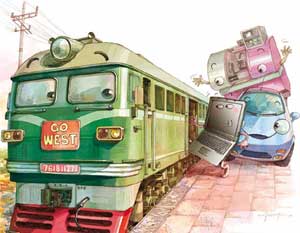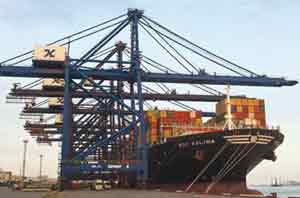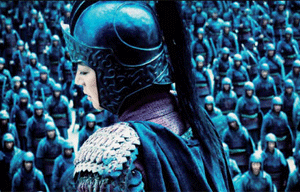Book demystifies nation's reform and development
Updated: 2011-09-16 07:48
By Yang Guang (China Daily)
|
|||||||||
The success of China's economic reform and development in the past three decades has attracted global attention. Of the major factors in this success, the reform of State-owned and other non-private sectors is considered the most striking.
Li Yining is arguably the nation's most eminent economist. His book, Economic Reform and Development - the Chinese Way, features 16 papers Li published during 1980 and 1998, on these epochal events, offering a perspective that is unfamiliar to Western readers.
For instance, the 1986 Basic Thoughts on Economic Restructuring was written seven years after the initiation of the country's economic restructuring, when the household contract system, which gives farmers greater control over their produce and a direct share in profits and losses, had been adopted in rural areas nationwide.
The new system dramatically increased agricultural output and rural living standards. But in urban areas, State-owned sectors continued to face government intervention and property rights remained ill-defined.
Li suggested in his paper that corporate reform be made a top priority. "Its main thrust should be directed at introducing the joint stock system and transforming State enterprises into firms that are liable for their own profits and losses, enjoy autonomy in business activity, and are operated by a wide spectrum of investors," he says of his ideas, in the preface of the book.
"I believed that this suggestion, if adopted, would ensure success in economic restructuring and provide institutional guarantees for smooth economic growth in this nation in the years to come," he continues.
Economic Reform and Development - the Chinese Way was first published in English by Foreign Language Teaching and Research Press in 2010.
It was given as a gift to British Prime Minister David Cameron on his visit to China at the end of last year.
Cambridge University Press acquired its overseas copyright at the just-concluded Beijing International Book Fair.











